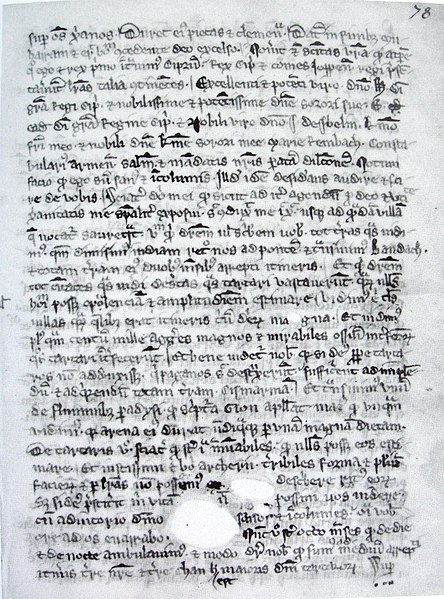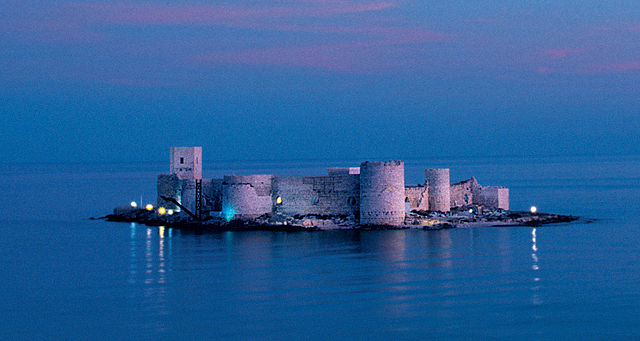Sempad the Constable was a noble Cilician Armenia. He was an older brother of King Hetoum I. He was an important figure in Cilicia, acting as a diplomat, judge, and military officer, holding the title of Constable or Sparapet, supreme commander of the Armenian armed forces. He was also a writer and translator, especially known for providing translations of various legal codes, and the creation of an important account of Cilician history, called in French the Chronique du Royaume de Petite Armenie. He fought in multiple battles, such as the Battle of Mari, and was trusted by his brother King Hetoum to be a key negotiator with the Mongol Empire.
A 14th century copy of the February 7, 1248, letter of Sempad to Henry I of Cyprus and John of Ibelin, stating that "If God hadn't brought the Tartars who then massacred the pagans, they [the Sarasins] would have been able to invade the whole land as far as the sea." The letter was also shown to Louis IX.
Armenian Kingdom of Cilicia
The Armenian Kingdom of Cilicia, also known as Cilician Armenia, Lesser Armenia, Little Armenia or New Armenia, and formerly known as the Armenian Principality of Cilicia, was an Armenian state formed during the High Middle Ages by Armenian refugees fleeing the Seljuk invasion of Armenia. Located outside the Armenian Highlands and distinct from the Kingdom of Armenia of antiquity, it was centered in the Cilicia region northwest of the Gulf of Alexandretta.
Baldwin of Boulogne receiving the homage of the Armenians in Edessa.
Fortress of Korikos in Cilician Armenia built c. the thirteenth century.
A young Cilician Armenian knight.
Ghazan ordering King Hetum II to accompany Kutlushah on the 1303 attack on Damascus.





